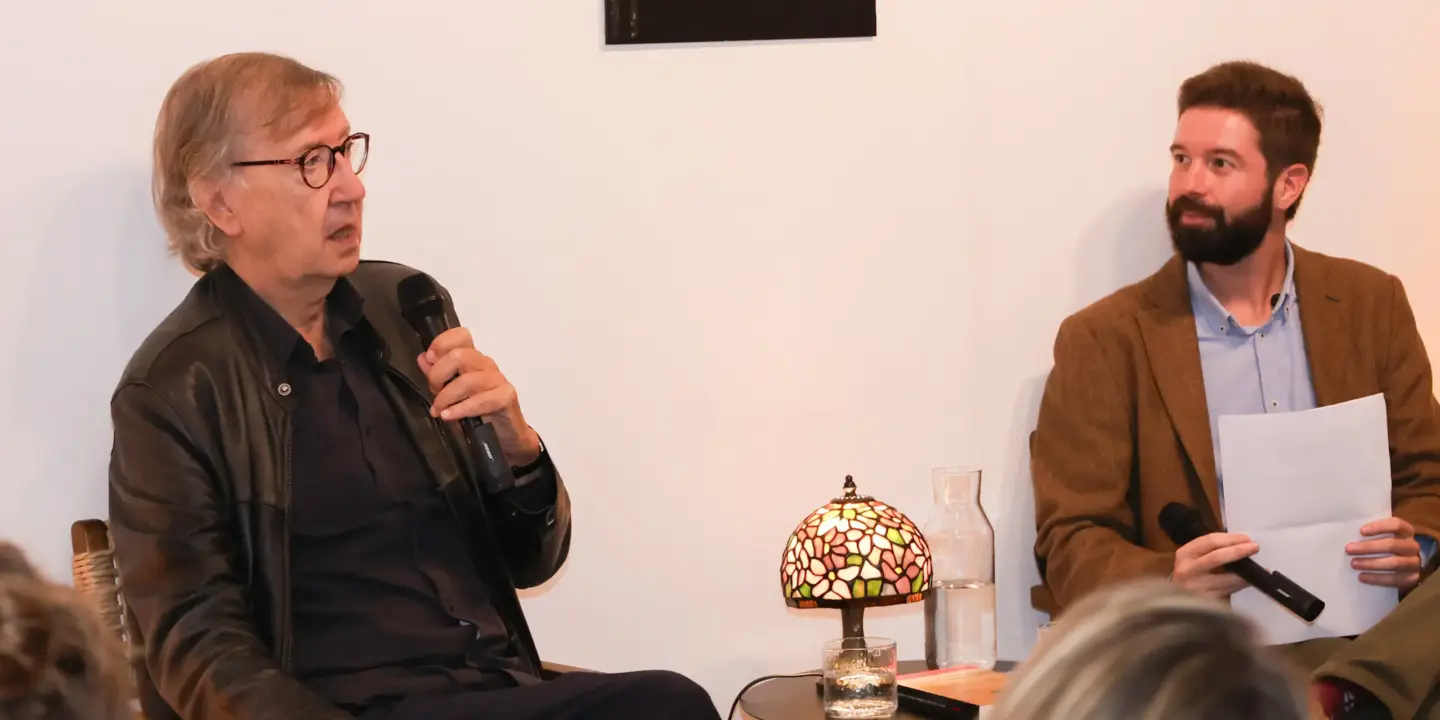Tuesday, 18th of November, became for many of us an unmissable event beforehand and an unforgettable one afterwards. Rafael Argullol (Barcelona, 1949), writer, poet, traveler and adventurer of the human soul, was the protagonist of the second meeting of the Can Prunera Thought Cycle, shaking up contemporary amnesia and apathy with an intelligent, accessible and lucid humanism. Following in the footsteps of his latest work, Caminar, Pensar, escribir (Walk, Think, Write), Rafael’s voice, always profound and wise, enlightened us without blinding us, stirred us without condescension and guided us without pontificating. He said that we must shake up the world that is coming and will come with humanism, poetry, hope and a secular devotion to the word: the central element of salvation. In the beginning was the word, the verb, and so it must remain.
The world no longer has the anchors that religions once provided. Modern man, always solipsistic and self-centred, believes he has killed the gods to occupy the vacant throne; but Rafael puts an end to these divine pretensions with a clever statement: the gods are not dead, they have vanished and are waiting for their moment to return. Until they return, he suggests we think, read and oscillate between hope and kindness, two words that require intimate silence and viral non-recognition in order to sow in the present the trees that will give us fruit and shade in the future. Theodor Kallifatides, in his work Timandra, reminds us that Socrates would have liked to be a tree to give shade to his friends, to listen to them laugh and philosophize under his protection and to let the coolness of his canopy temper the vanity of the summer sun. Rafael was also a benevolent oak tree, a generous olive tree and a refuge from the elements, because we were all able to enjoy him and to take home pearls of wisdom.
With the perspective that knowledge and the passage of time provide, Argullol commented that he does not fear death, but that for him it is a disgust, because he likes this life, everyone’s life, and wants to continue diving and enjoying it. But he knows, as a great reader of the Greek writers (Sophocles, Euripides and Aeschylus), that we are ephemeral, that is to say, men of a day, and that, in the brevity of our stay on earth, if we must choose, we must choose thought, which is a gleam in the night, as he writes in Aventura: una filosofía nómada.
His way of observing the world has been changing between travels, cross-cutting writings and well-trodden paths, arriving at a conclusion that drew a general smile from the more than fifty attendees at the event:
As the years have passed, I have been dividing human beings into two great groups: those who make my life pleasant and those who do not. I try to avoid the latter.
This is a great lesson that we could apply every day to avoid disappointment. Miguel de Cervantes wrote that good company is often a relief from misery, and if we follow Cervantes‘ recommendation, we will enter a world of particular interest to Argullol: the essential hospitality of the heart. True friendship and hospitality were represented by the Greeks with their sýmbolon, and by the Romans with the tessera hospitalis, creating an artifact to formalize a union, whether commercial, human or religious. In our particular case, it was between two true friends who, in order to forge that everlasting friendship, created a tessera, divided it in two, and each took a part. When they met again after many years, they put it back together and their friendship was reaffirmed. Argullol’s tessera hospitalis are his books.
With Rafael’s help, we also discovered that every human being must be a disciple of wait, even when travelling, feeling or reading. Nothing should be reactionary. The best teachers to teach us to wait are books – comfort and company – that illuminate the dark areas of the soul. Poetry would be another great teacher, a teacher of echoes, as Rafael reminds us, quoting Mandelstam. For relief and discomfort, Rafael prescribed myths, which, for him, are truths located in another dimension, perhaps in another place. He learned everything he knows from the Greeks, he says, especially from Plato, Aristotle, Heraclitus and Epicurus, as well as of the tragedies of Aeschylus, which are the pinnacle of literature for him.
In the end, when the audience began to join the conversation, a sort of ephemeral fellowship of thinkers was created in which we felt embraced, unwilling, like Goethe, for that moment ever to end. We wholeheartedly thank Rafael for his uplifting presence, chivalry and elegance, as well as for his philosophical imperative that eschews “know yourself” in favor of “Get lost and return!”
We will get lost and return a thousand times, dear Rafael, united in an eternal Human Dance, walking, thinking and… living.
